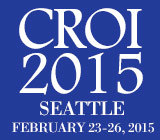 The global HIV advocacy group AVAC has raised an alarm that global goals for HIV prevention may prove ineffectual due to their vagueness. In a comprehensive report on the state of the HIV epidemic, AVAC has called for more specific targets that harness scientific knowhow in order to deliver reasonable results along a set timeline. The organization released the report, Prevention On the Line, in anticipation of the 2015 Conference on Retroviruses and Opportunistic Infections (CROI) in Seattle.
The global HIV advocacy group AVAC has raised an alarm that global goals for HIV prevention may prove ineffectual due to their vagueness. In a comprehensive report on the state of the HIV epidemic, AVAC has called for more specific targets that harness scientific knowhow in order to deliver reasonable results along a set timeline. The organization released the report, Prevention On the Line, in anticipation of the 2015 Conference on Retroviruses and Opportunistic Infections (CROI) in Seattle.
“We’re at a make-or-break moment and the future of HIV prevention is on the line,” Mitchell Warren, AVAC’s executive director, said in a press release. “Advances in HIV treatment and prevention research have made it possible to contemplate ending the AIDS epidemic in our lifetimes, but that will only happen with smarter planning, increased resources and greater accountability.”
The Joint United Nations Programme on HIV/AIDS (UNAIDS) recently set audacious goals to reduce new global HIV infections from 2.1 million in 2013 to 500,00 in 2020, and to eliminate stigma and discrimination by the beginning of the next decade. AVAC’s report reinforces the importance of such ambition in the face of the HIV epidemic, but is critical of goals that appear infeasible, lack specificity, do not have a means of measuring success, and which are short on financial support.
“The UNAIDS prevention goals for 2020 are ambitious and inspiring,” said Warren. “But something important is missing from this picture: how to get there. We need a clear path forward, including short-term targets, so we don’t wait five years to see if the world is on track. And new targets won’t be met—and may even be irrelevant—if we fail to close the growing global funding gap for HIV prevention.”
The report outlines a three-part strategy for fighting the epidemic. The first point is to merge efforts to support human rights with targeted anti-HIV initiatives. Second, AVAC calls for funds to scale up the use of pre-exposure prophylaxis (PrEP) against HIV. Lastly, the advocacy group calls for accelerated research into long-term solutions to the epidemic, including vaccines, long-acting PrEP, HIV treatment and a cure for the virus.
To read the press release, click here.
To read the report, click here.
Advertisement
Advertisement
Advertisement






Comments
Comments